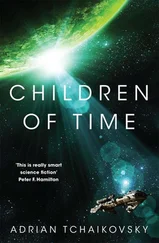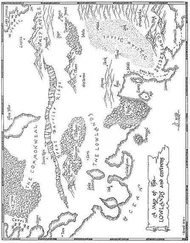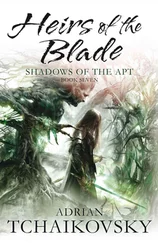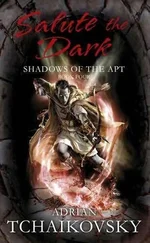Adrian Tchaikovsky - Dragonfly Falling
Здесь есть возможность читать онлайн «Adrian Tchaikovsky - Dragonfly Falling» весь текст электронной книги совершенно бесплатно (целиком полную версию без сокращений). В некоторых случаях можно слушать аудио, скачать через торрент в формате fb2 и присутствует краткое содержание. Жанр: Фэнтези, на английском языке. Описание произведения, (предисловие) а так же отзывы посетителей доступны на портале библиотеки ЛибКат.
- Название:Dragonfly Falling
- Автор:
- Жанр:
- Год:неизвестен
- ISBN:нет данных
- Рейтинг книги:5 / 5. Голосов: 1
-
Избранное:Добавить в избранное
- Отзывы:
-
Ваша оценка:
- 100
- 1
- 2
- 3
- 4
- 5
Dragonfly Falling: краткое содержание, описание и аннотация
Предлагаем к чтению аннотацию, описание, краткое содержание или предисловие (зависит от того, что написал сам автор книги «Dragonfly Falling»). Если вы не нашли необходимую информацию о книге — напишите в комментариях, мы постараемся отыскать её.
Dragonfly Falling — читать онлайн бесплатно полную книгу (весь текст) целиком
Ниже представлен текст книги, разбитый по страницам. Система сохранения места последней прочитанной страницы, позволяет с удобством читать онлайн бесплатно книгу «Dragonfly Falling», без необходимости каждый раз заново искать на чём Вы остановились. Поставьте закладку, и сможете в любой момент перейти на страницу, на которой закончили чтение.
Интервал:
Закладка:
Then Salma went to face the headman.
‘We did not bring them down on you,’ he said because, all through the fight, that had been his thought, of what the villagers must surely believe.
‘I did not believe you had,’ said the headman, a Beetle-kinden, like most of the villagers. There was a cut across his balding scalp that one of his own people had bandaged. ‘Why did you come here?’
Salma shrugged. He was feeling haggard and worn down and his wound ached. ‘We saw your houses and we were hungry.’
‘Take the food,’ the headman said. ‘I have some money, too. We have done well here until the troubles.’
Salma wanted to refuse, but he thought of Phalmes and knew that he had at least that much responsibility — even to bandits and deserters.
The dawn brought a sight that made him shiver. Without ever discussing it, his followers had taken the arms and armour of the slain bandits. The Fly-kinden had swords and daggers now, and the Beetle-kinden farmwife had a crossbow. The three slaves had covered their tunics with studded leather hauberks. Sfayot’s eldest daughter had a short-hafted axe thrust through her belt. She had accounted for herself well with slung stones, the previous night.
Phalmes approached Salma and held a shortsword out to him, hilt first.
‘I saved this one,’ he said. ‘I know a bit about swords and here’s a good one. Helleron-made, and they know their business there.’
Salma accepted it gratefully. The balance was good, better than the Wasp-kinden weapon he had carried for so long. It felt good to have a proper sword in his hand again.
Two nights after the village he dreamt of home: riding out of the elegant palace of Suon Ren in the Principality of Roh, and seeing the landscape spread out before him in gentle tiers that centuries of careful cultivation had made into a picture of perfect beauty: the green and gold of the fields under the blue of the sky. It was autumn, near harvest, and the cold breeze that was blowing promised an early end to those warm days. The northern landscape revealed more snow on the mountaintops than a tenday ago. The Lowlanders knew nothing like this in their dry land of bronze and dun and yellow.
He had ridden out and through the fields, and through the small villages built of golden wood that stood safe within sight of the castle. On the horizon was the shadow of the Gis’yaon Hold where he had guested twice with the Mantis-kinden, renewing the bonds of fealty and solidarity between them and the Principality of Roh — and through Roh to the Monarchy itself.
As he passed through these villages, the people bowed to him in honour and respect, and his horse tossed her head in reply.
Last winter the predators had come down from the hills, and Salma had ridden out with Felipe Shah to deal with them. The body of the Commonweal was groaning with parasites, and those parasites were brigands. In its thousand-year history there had been times of strength and times of recession, but never such a difficult time as this. The Monarch’s realm was patchworked with rot like a blighted leaf. Some roads were so preyed upon that even the Crown’s own messengers could not pass safely. There were loyal principalities cut off from the court by lawless lands. Some castles were the home only of robber barons who played at the prince but were nothing more than bandits grown fat unopposed.
Where now is that golden sound our strings once gave unto the dawn? had sung the old minstrel at Felipe’s court.
Where now is the ancient blade for many years so boldly drawn?
The mist of autumn leaves its tears,
The weeping of the ending year,
Of maidens for their husbands lost, of children into darkness born.
And Felipe and Salma and their men had gone to fight, from horseback, from the air, with spear and punch-sword and bow, because the principality was like a garden, and a gardener had a duty to ensure the health of his charges.
Duty and responsibility, of course. A duty to protect those in the principality who could not protect themselves, because Salma was a Prince Minor of the Commonweal.
The next day, Phalmes rode along next to Sfayot’s cart and spoke to Salma, although it was at Sfayot’s eldest daughter that he looked most. Nero sat up beside Sfayot himself, in between his occasional flights about the surrounding countryside.
‘Did you ever hear about the Mercers?’ Salma asked.
‘How could I not?’ Phalmes said. ‘While fighting in the Commonweal, you got to hear a lot about the cursed Mercers.’
‘And?’
‘And what? I could never work them out. Your people, your peasantry, seemed to worship everything they did, but the pissing Mercers weren’t averse to cutting throats when it came to it. Nobody wanted to fight them. At least there weren’t so many of them.’
‘Thousands, really, but you would have seen few enough’ Salma said. ‘They do more than fight invaders, though. In fact that’s barely what they do at all. They protect the Commonweal, and that means mostly from its own worst impulses. They go wherever brigands have made the roads unsafe, where princes are cruellest to their subjects, or have rejected the wisdom of the Monarch. And they work against invaders, and their agents, but they defend the Commonweal first and foremost. They are heroes.’
Phalmes shrugged. ‘Well, you asked me what I knew about them. So what of it?’
Salma smiled slightly. ‘Where will you be in five years, Phalmes?’
‘In an unmarked grave, probably,’ replied the ex-bandit. ‘Possibly the same in just five days. It’s an uncertain time. I’d prefer to go. ’
‘Home?’
‘Myna, yes. But I can’t see that happening.’ A shadow crossed his face, and Sfayot’s eldest inched forward to look at him more closely. ‘Ever,’ he added. ‘Even if Kymene starts a revolution, the Wasps will only put it down within a month, or even a year, and what difference would that make? And then everything will just be worse. So, if I do live out five years? Who knows? I don’t feel that I myself have much of a choice in the matter.’
‘And if I gave you a choice?’ Salma said.
Phalmes frowned at him. ‘Meaning what?’
‘I’m a prince,’ Salma reminded him.
‘Good for you, Your Worship. So what?’
‘In the Lowlands they don’t understand it. In the Empire too I’d guess. I’d almost forgotten it myself, but I am a prince and that still means something, wherever I am.’
The messenger brought Totho to a long practice hall attached to one of Drephos’ newly commandeered factories. There were targets of wood fixed to the far wall down a long arcade, scuffed and scratched and painted with range-markers.
The master artificer was there already, along with his entire cadre of followers and a few Wasp soldiers as well. Totho found himself the last to arrive. There was no resentment, though, only a barely concealed excitement about them. Totho sought out Kaszaat but her expression conveyed a warning.
Drephos was smiling, as lopsided as ever. He had his hood fully back, with no cares about his malign features amongst his own people. In his hands was the snapbow.
Totho had originally called it an airlock bow in his designs but, after the sound that it made, the term snapbow had stuck, from the artificer’s old habit of calling any kind of ranged weapon a ‘bow’ of some sort, despite the lack of arms or string. This was the tweaked and adjusted article, perhaps destined to undergo another iteration, perhaps to be presented as finished. Each of Drephos’s artificers had been given a chance to make further changes and test them. The last day or so had already seen a dozen separate prototypes tried and forgotten.
Читать дальшеИнтервал:
Закладка:
Похожие книги на «Dragonfly Falling»
Представляем Вашему вниманию похожие книги на «Dragonfly Falling» списком для выбора. Мы отобрали схожую по названию и смыслу литературу в надежде предоставить читателям больше вариантов отыскать новые, интересные, ещё непрочитанные произведения.
Обсуждение, отзывы о книге «Dragonfly Falling» и просто собственные мнения читателей. Оставьте ваши комментарии, напишите, что Вы думаете о произведении, его смысле или главных героях. Укажите что конкретно понравилось, а что нет, и почему Вы так считаете.












